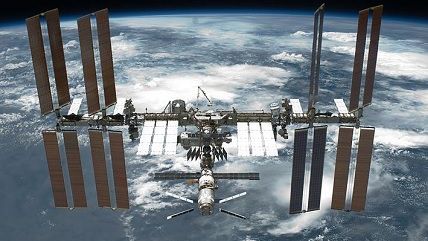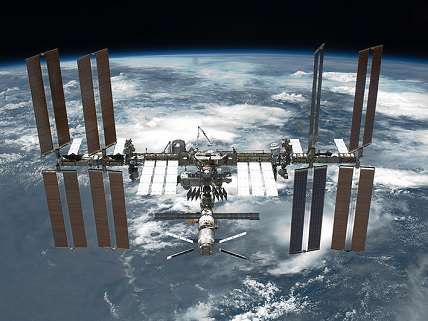U.S. and Russia Fight Over Ukraine but Continue to Cooperate in Space
Sanctioning the relationship between the space agencies would hurt both governments.


CNN points out that despite rising political tensions between the United States and Russia over the latter's intervention in Ukraine, the two countries continue to cooperate in space:
The space collaboration between the two nations has survived other diplomatic kerfuffles—most recently, the war in Syria and asylum for NSA leaker Edward Snowden—and there's no need to worry, NASA says.
"We do not expect the current Russia-Ukraine situation to have any impact on our civil space cooperation with Russia, including our partnership on the International Space Station program," said Allard Beutel, a NASA spokesman, pointing out that it's in both countries' best interests not to disrupt "operations that have maintained continuous human presence on orbit for over a decade."
Beutel added, "NASA and its Russian counterpart, Roscosmos, have maintained a professional, beneficial and collegial working relationship through the various ups and downs of the broader U.S.-Russia relationship and we expect that to continue."
CNN highlights comments from a former space engineer who in December called the relationship one of "reluctant co-dependence." Since the retirement of the space shuttle fleet in 2011, NASA has relied on Russian Soyuz capabilities to get to the International Space Station, a joint project of the U.S., Russia, Europe, Japan, and Canada. The Russians, in turn, rely on superior technology available through NASA as well as the $71 million per seat they get for taking American astronauts into space.
The U.S. and Russian governments, then, both appear to understand the mutual economic harm that would be caused by extending sanctions to the relationship between their space agencies. If only governments understood that broader sanctions likewise harm the economic relationships between the peoples they govern.
Meanwhile, nearly two weeks after Russian intervention in Ukraine began, the European Union has agreed to the framework and wording of its sanctions against Russia.


Show Comments (45)